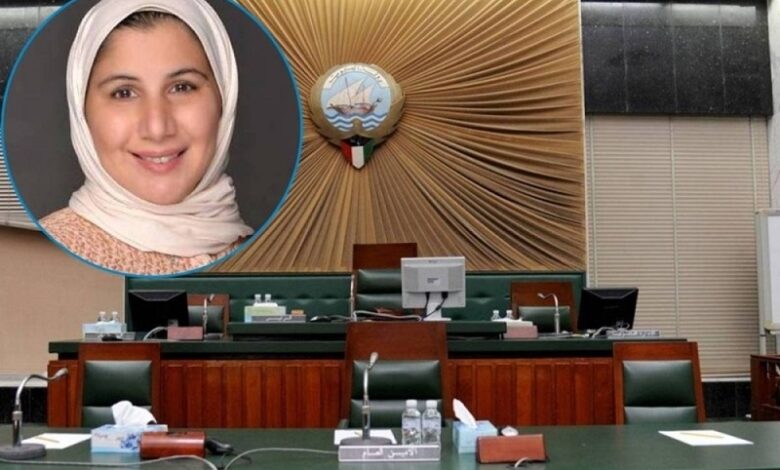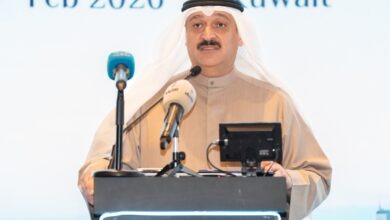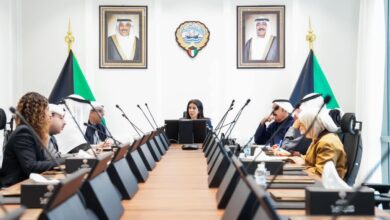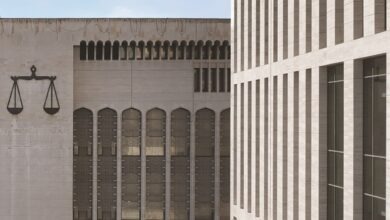Eng Al-Farsi proposes national sustainable code for parking design in Kuwait

Municipal Council member Engineer Alia Al-Farsi has submitted a detailed proposal titled “Comprehensive Sustainable Regulations for Regulating Parking Lot Construction,” to establish a unified and environmentally sustainable code for parking design in Kuwait.
Highlighting the country’s heavy reliance on private vehicles and the resulting unregulated spread of parking facilities, she pointed out the absence of a consistent framework across government entities, leading to performance gaps, noncompliance with environmental standards, and a negative urban impact, reports Al-Rai daily.
Al-Farsi emphasized the urgency of adopting a national code that incorporates global best practices in parking design and aligns with Kuwait’s Vision 2030 and the UN Sustainable Development Goals.
The proposed code, falling under the Municipal Council’s jurisdiction as per Article 21 of Law No. 33 of 2016, would serve as a binding reference for all relevant agencies and significantly improve the urban environment and quality of life.
The proposal outlines standards addressing urban design, environmental sustainability, energy efficiency, smart technologies, multi-use integration, sustainable materials, and long-term maintenance.
These include designated areas for bicycles, provisions for electric vehicles, tree planting, green roofs, reflective materials, and smart systems for lighting and occupancy monitoring.
In a progressive move toward sustainable urban development, Municipal Council member Engineer Alia Al-Farsi has proposed the creation of a comprehensive code to regulate the design and construction of parking lots in Kuwait. The proposal, aligned with global standards in sustainable urban planning, seeks to address the environmental, spatial, and infrastructural challenges arising from the country’s growing reliance on private vehicles.
According to Al-Farsi, the current landscape of parking facilities—ranging from surface-level lots to multi-story structures—lacks unified standards that prioritize environmental sustainability or efficient land use.
Her proposal outlines five overarching goals: to establish sustainable design standards for all types of parking lots across Kuwait, reduce their environmental impact, encourage the use of alternative and eco-friendly transportation, improve land use efficiency, and enhance the overall quality of life by integrating natural elements and smart technologies into urban planning.
To implement this vision, the Kuwait Municipality will form a multidisciplinary committee consisting of representatives from the Ministry of Public Works, Public Authority for Housing Welfare, Kuwait Institute for Scientific Research, Kuwait University, and the Ministry of Interior’s General Traffic Department, among other concerned agencies. This committee will be responsible for drafting and overseeing the application of the new sustainable parking code.
The proposed code will be built on seven key pillars:
Urban and Engineering Design Standards — The code will define the minimum and maximum dimensions of parking spaces based on usage types, ensuring uniformity and compliance with international specifications. It mandates space allocations for bicycles and micromobility options and requires pedestrian-friendly designs. Additionally, it promotes the adoption of flexible parking dimensions to accommodate electric and hybrid vehicles.
Environmental Sustainability Standards — To counter urban heat and pollution, the code will require the planting of trees over at least 30–50% of surface parking areas, approximating one tree for every three to four vehicles. It also advocates for the use of eco-friendly materials such as solar-paneled umbrellas, permeable pavements, and the inclusion of rooftop gardens in multi-story facilities.
Energy Efficiency and Smart Technologies – Parking areas will be equipped with infrastructure for electric vehicle charging stations, energy-efficient LED lighting with sensors, and smart guidance systems to manage occupancy and reduce power consumption.
Mixed-Use and Urban Integration Standards — The code encourages linking major parking facilities with public transport hubs, and calls for parking designs that blend seamlessly into the urban environment without disrupting pedestrian movement or public spaces.
Material and Construction Standards – Sustainable construction materials will be prioritized, including low-emission concrete and recycled components. Preference will be given to local materials to minimize the carbon footprint. The use of prefabricated construction units is also encouraged to reduce development time.
Maintenance and Operational Standards — The code emphasizes ease of access to key systems such as lighting and drainage for maintenance purposes. It also proposes smart remote control systems for operation and monitoring, as well as a sustainable long-term maintenance plan for public parking areas.
Alignment with Sustainable Development Goals — Each standard outlined in the code will be mapped to specific UN Sustainable Development Goals, including SDG 11 (Sustainable Cities and Communities), SDG 13 (Climate Action), SDG 7 (Affordable and Clean Energy), SDG 15 (Life on Land), and SDG 9 (Industry, Innovation, and Infrastructure).
To facilitate the adoption of these sustainable practices, Al-Farsi proposed a set of incentives for both public and private sector stakeholders. These include financial support through exemptions or funding, technical and engineering assistance, streamlined licensing processes, a “Green Parking” certification label, and other creative incentives to be developed by the Kuwait Municipality.
This initiative reflects a growing awareness of the environmental challenges facing urban centers and represents a bold step toward transforming Kuwait’s parking infrastructure into a model of sustainability and smart planning.












